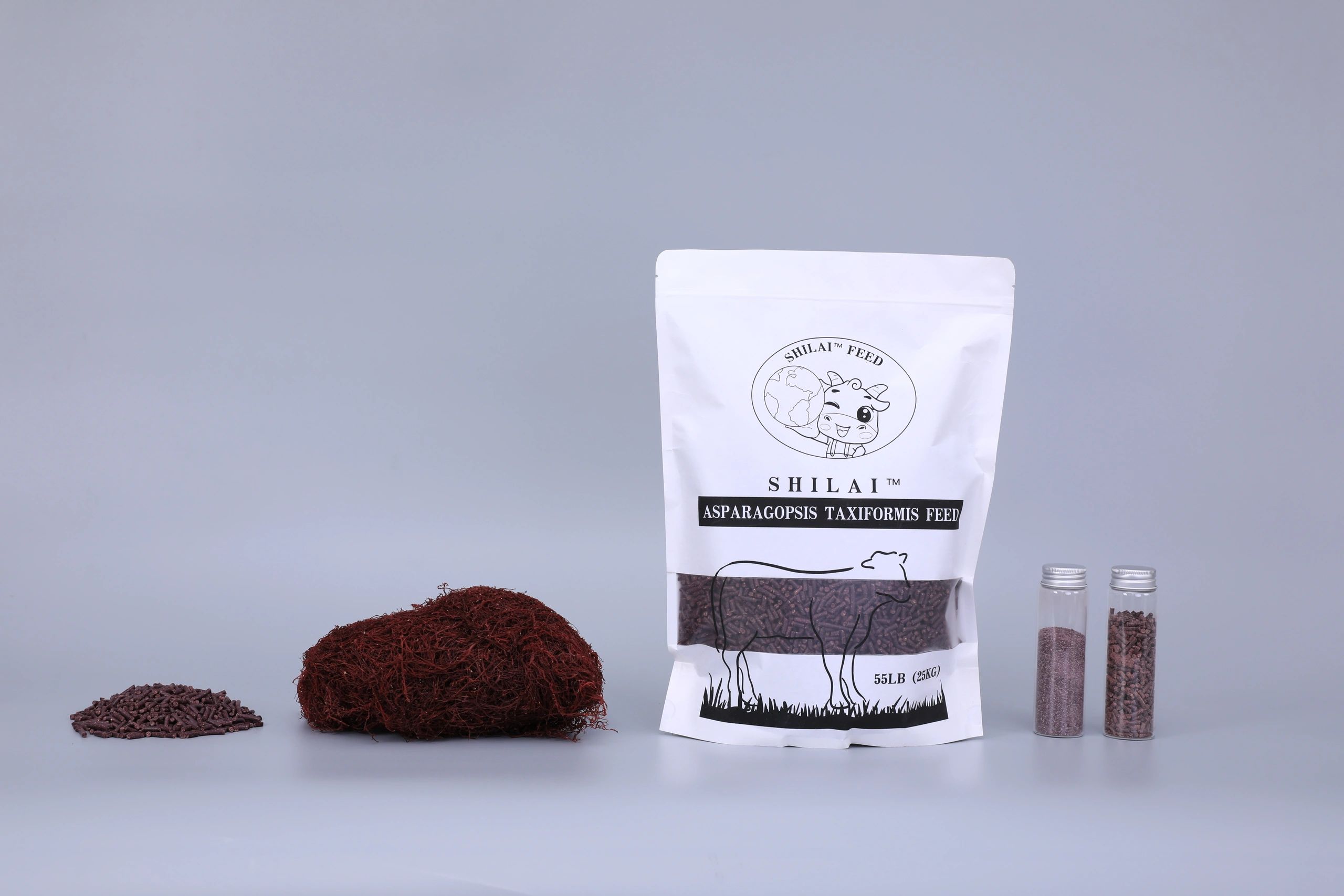
The global agricultural sector is a major source of greenhouse gas emissions, especially from livestock farming.
The climate impact of methane surpasses that of carbon dioxide on a per-molecule basis, underscoring the urgency to reduce it.
A red seaweed called Asparagopsis taxiformis has surfaced as a potential game-changing tool to lower methane produced by grazing animals.
By supplying a molecule that suppresses rumen methanogenesis, the seaweed reduces livestock methane output.
Formulating feeds with Asparagopsis taxiformis has shown experimental success, suggesting an actionable strategy to shrink the carbon footprint of animal farming.
- Additionally, Asparagopsis taxiformis provides further value propositions alongside emissions reductions.
- Enhanced overall livestock health
- Potential to stimulate rural economies via seaweed value chains
Even though extensive research and validation are ongoing, Asparagopsis taxiformis appears poised to be a meaningful mitigation option.
Unleashing the Benefits of Asparagopsis taxiformis Powder for Feed Applications
The powder and extract forms of Asparagopsis taxiformis could deliver new nutritional and environmental value in feeds.
The seaweed’s composition includes valuable nutrients and active molecules that can improve productivity metrics.
Formulating with A. taxiformis powder has lowered methane in studies and can provide additional vitamins and minerals to animals.
Ongoing research must address effective dosing strategies, production processes, and chronic safety/effectiveness considerations.
The Promise of Asparagopsis taxiformis for Greener Animal Agriculture
This red marine species is being highlighted for its capacity to reduce the ecological burden of routine livestock operations.
Adoption of the algae in feed could enable measurable reductions in methane and a smaller ecological footprint for farms.
Research findings indicate the seaweed may also enhance productivity and health markers in livestock alongside emission cuts.
Additional long-range research and deployment studies are needed, but current trial outcomes are optimistic.
Methane Reduction Through Asparagopsis Feed Additive
Research highlights Asparagopsis as a potential, effective way to minimize methane from ruminant animals.
The seaweed’s effect stems from its ability to inhibit methanogenesis, the microbial process that creates methane in the rumen.
- Controlled research has shown notable methane declines in animals fed Asparagopsis in trial settings.
- Asparagopsis integration into feed is viewed as a sustainable strategy to reduce agricultural greenhouse gases.
- There is growing industry momentum toward trialing Asparagopsis as part of feed strategies.
Asparagopsis: The Seaweed Transforming Livestock Production
From ocean science to farm practice, Asparagopsis taxiformis is an emerging contender for sustainable methane mitigation.
- Feeding trials with Asparagopsis demonstrated substantial methane declines, supporting its environmental promise.
- The approach may enable more sustainable food systems that reduce emissions while maintaining farm productivity.

As global efforts intensify to find sustainable climate solutions, Asparagopsis stands out as a novel and actionable option for livestock methane mitigation.
Optimizing Methane-Cut Feed with Asparagopsis taxiformis
Scientific teams are investigating best-practice processing and dosing to improve the performance of A. taxiformis in feeds.
The Science Behind Asparagopsis taxiformis's Methane-Lowering Effects

The observed methane reduction results from the seaweed’s compounds that hinder the growth and function of methanogenic microbes.
Researchers point to bromoform as a primary bioactive in Asparagopsis that suppresses methanogens, with continued evaluation of long-term impacts.
Incorporating Asparagopsis into Feed Recipes to Advance Sustainable Production
Its dual role as a nutrient source and methane inhibitor supports its use as a component in sustainable feed blends.
The seaweed’s inclusion can enrich feed nutrient profiles, support gut health, and exhibit antimicrobial or immune-supportive properties.
A Greener Food Future with Asparagopsis taxiformis
Asparagopsis taxiformis offers a natural pathway to mitigate climate impacts associated with livestock and contribute to sustainable food systems.
- Additionally, the species offers a useful blend of nutrients that complement feed formulations.
- Scientists and industry experts are actively exploring its uses across aquaculture, agriculture, and food production sectors.
Integrating Asparagopsis taxiformis into existing practices could produce meaningful reductions in the environmental impacts of agricultural activities.
Enhancing Animal Health and Productivity with Asparagopsis Feed Additives
Asparagopsis shows promise as a multifunctional feed additive that supports emissions reduction and animal performance.
Studies report improvements in nutrient uptake and feed efficiency when Asparagopsis is integrated into rations, aiding growth.
Functional benefits like antioxidant and immune-support properties may accompany Asparagopsis use, reinforcing animal health.
Growing market and regulatory interest in emissions reduction underscores the potential role for Asparagopsis as development continues.
Asparagopsis and Methane Reduction: A Path to Carbon Neutrality
Facing intensifying expectations to curb emissions, farming may turn to Asparagopsis as part of its mitigation toolkit.
- The scientific consensus points to the seaweed’s compounds as inhibitors of rumen methanogenesis, limiting methane output.
- Studies and trials consistently report significant methane reductions from Asparagopsis inclusion under controlled conditions.
This innovative approach not only offers a greener feed option but also the potential to transform food production toward climate-resilient outcomes.